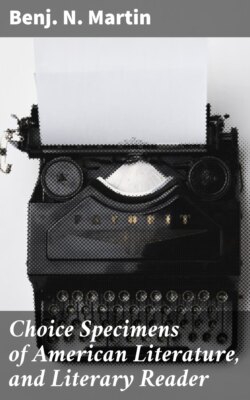Читать книгу Choice Specimens of American Literature, and Literary Reader - Benj. N. Martin - Страница 30
На сайте Литреса книга снята с продажи.
=3.= MEANING OF THE PHRASE "MORAL INABILITY."
ОглавлениеIt must be observed concerning Moral Inability, in each kind of it, that the word Inability is used in a sense very diverse from its original import. … In the strictest propriety of speech, a man has a thing in his power, if he has it in his choice, or at his election; and a man cannot be truly said to be unable to do a thing, when he can do it if he will. It is improperly said, that a person cannot perform those external actions which are dependent on the act of the will, and which would be easily performed, if the act of the will were present. And if it be improperly said, that he cannot perform those external voluntary actions which depend on the will, it is in some respect more improperly said, that he is unable to exert the acts of the will themselves; because it is more evidently false, with respect to these, that he cannot if he will; for to say so is a downright contradiction: it is to say he cannot will if he does will. And in this case, not only is it true, that it is easy for a man to do the thing if he will, but the very willing is the doing; when once he has willed, the thing is performed; and nothing else remains to be done. Therefore, in these things to ascribe a non-performance to the want of power or ability, is not just; because the thing wanting is not a being able, but a being willing. There are faculties of mind, and capacity of nature, and everything else sufficient, but a disposition; nothing is wanting but a will.
* * * * *
=Samuel Davies, 1725–1761.= (Manual, p. 480.)
From his "Sermons."
